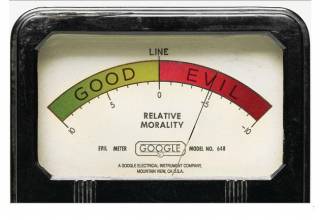Choices, Story, and Where It All Goes Wrong- Part 1
By gamer_152 21 Comments
Given the unique level of interaction video games provide as a medium, it’s not surprising that many of them have allowed us to try and manipulate their stories by providing players with interesting ways to shape their narrative, but doing this without creating conflicts between the gameplay and story is much harder than it would at first seem. We’re only too familiar with moral choices, dialogue options, branching stories and similar concepts but to me it seems like there’s one fundamental mistake in how such choices are often implemented into games.
Rewards for Story Choices

I’m a big fan of developers attempting to make gameplay and story flow more smoothly together. I believe that if you want to make a player really care about something in the story, be it a character, object or goal, then making it an important part of the gameplay is one of the best ways you can do that. there seems to be an inherent problem in trying to do this with story-based choices though. Many games follow the tact of trying to make players feel a greater attachment to the narrative by assigning gameplay rewards to certain choices within the game; choose this dialogue option and get +10 “good” points, select this storyline over that one and gain different attacks, and so on. The problem is that as soon as you apply this kind of logic to choices within the story, they stop being narrative choices and start being gameplay choices.
Did I lie to that NPC because that’s what I wanted my character to do? No, it’s because I got bonus experience points for an action that utilised my speech skill. Did I sacrifice that character for the good of my own because I wanted too? No, it’s because I’ll benefit greatly from the huge boost to my “evil” quotient. In the real-world such choices are difficult and interesting because we have to consider the feelings of real people. Video games are entertainment products, where our choices (in single-player at least) affect no one but ourselves and players are very likely to place the importance of their gameplay success above the narrative choices they want to make, and even in situations when they don’t this kind of design still creates a conflict. These choice-based systems often benefit the gameplay but they actually work against the narrative they’re attempting to enhance, a particularly relevant problem considering that it’s the narrative-focused games such as RPGs that make the most use of these kinds of in-game choices.
Moral Choices or Moral Problems?

These kinds of questions are impacting because they’re not just about the game world or even about the player’s ability, but they provide us with deep questions about our beliefs and morals. Do we think its right to limit the reproductive capabilities of a race that has a history of genocidal actions? Is it okay to leave someone who loves you to fight a war you believe in? Video games are the first medium which can acknowledge our answer to these kinds of questions and allow us to watch how our answer might affect the world.
As I see it these kinds of difficult questions are much more interesting than constantly being asked “Do you want to be good or bad?” I’m not trying to be all high and mighty here, saying that every game with an in-depth story needs to be asking intellectual, probing questions. I love games that don’t care about that kind of thing and allow you to just enjoy the world and game mechanics the developers have created for you, but now and then I want more than that, and in either case any game with a well-developed story needs something more than just clicking the blue option or the red option over and over.
Illogical Morality

Most games with moral choice systems push us to extremes; we’re either always picking the good option or always picking the evil option, because only the good option or the evil option will push the good/evil meter in the direction we’re aiming for. This often appears somewhat ridiculous; the real world rarely works in terms of extremes and people never take every single opportunity to go out of their way to be dicks or be nice. This is fine for more cartoonish, less self-serious games but in other circumstances it doesn't work so well. Middle-ground options are also almost entirely ignored as they either don’t reward any kind of points or don’t push the morality meter far enough in one direction. This greatly diminishes the idea of the choice in the moral choice or narrative choice, as developers are presenting players with a number of possible options, but giving them very clear flags at to which choice they’ll benefit the most from choosing. We wouldn’t see this kind of non-choice in any other part of gameplay, but in the case of narrative choices it seems to pop up only too often.
The reactions of NPCs or computer-controlled characters in games with moral choice systems also don’t often make sense. When a character performs a good action or an evil action, every NPC in the in-game world instantly has knowledge of the good or evil action they've committed, and every single person makes exactly the same judgement about how morally just or unjust the player character is, as though they were all held together by some universal force. Fallout goes as far as to almost comically suggest that there's a universal karma at work. It’s one of the more minor issues but it still comes across as rather odd when you’re the player.
The Designer’s Choice
Of course you might assume that moral choice systems are only appearing in games because they’re all the rage now, one game that has moral choice systems sells well, then another adopts it and before you know everyone needs one, and I’m sure that’s a big factor, but designers have a deeper problem. Keep using these current kinds of choice systems and you risk creating conflicts between gameplay and story, remove choice systems and the choices the player makes in the game have less of an inherent impact. Each of these approaches obviously has its pros and cons, and I think there’s room for both, but in most situations I think the latter is preferable to the former, and in situations where choice systems are to be included perhaps moral choice mechanics, at least, could do with a bit of an overhaul.
Duder, It’s Over
Next week I’ll look at what I believe could be done to improve choice systems and make a conclusion on this whole crazy matter. Thanks for reading, good luck, and have zombie.
-Gamer_152